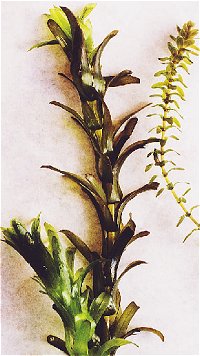|
In A Nut Shell
Eat, Drink and Be Driven:
Sensible advice and the name of a road safety campaign the Council is involved in. The aim is to encourage workplaces to make safe transport plans for their staff this Christmas. Ruth Leversedge, based in the City Streets Unit, says there are on average 15 alcohol-injury crashes in Christchurch a month and obviously the end of year-Christmas-New Year period is a dangerous time. She is coordinator for the Christchurch Alcohol Action Project (CAAP), which helped organised Eat, Drink and Be Driven with other agencies in the City. Five community boards are also contributing. Kits containing prices for shuttles, information about alcohol and host responsibility, and a form to win taxi vouchers for Christmas functions are being distributed to workplaces.
Surviving Fire:
Remember to check and replace batteries in smoke alarms. This advice was emphasised at a Community Services committee meeting.
Best Foot Forward:
The Council wants people's input into the pedestrian strategy it is developing to make the City a better place to walk and encourage more people to walk.
A draft strategy is available at libraries, service centres and from Stephanie Styles in Environmental Policy and Planning, ph 941 8789 or visit www.ccc.govt.nz.
Submissions close on 17 December. The pedestrian strategy will form the wider transport strategy for the City with the cycle, public transport and road safety strategies.

The bigger plant is Egeria, the other one Canadian pondweed.
|
Weed Infestation:
The Council is trying to eradicate a weed which could block waterways, cause problems for rowers, and spread throughout Canterbury. Originally from Chile, the Egeria densaquatic weed is widespread in the North Island, where it is a problem in hydro lakes, and was discovered in the Avon River earlier this year. Chris Rance, from Water Services, says Down Under Services Ltd (Wanaka) has been employed to do the work using a floating suction dredge - and there is a good chance of eradicating the weed. The publican help by being vigilant about cleaning boats so fragments of the prolifically growing weed are not spread. Egeria looks like the widespread Canadian pond weed, sometimes called oxygen weed. The dark green leaves are about 4cm long and mostly come off the stems in groups of four or five.
For more information contact Chris Rance on 941 8391. If you think you know of any Egeria in Canterbury please contact a bio security officer at Canterbury Regional Council.
Concern for Rural Health:
Provision of adequate health services in rural areas is in crisis, according to the mayors and chairpersons of all South Island local authorities. They met in Hamner Springs in October to discuss this issue and others and draw upon their collective influence.
Dunedin Mayor Sukhi Turner said they should be working with the Medical Association to support it in arranging adequate financing and to make more doctors available for locum services in rural districts. Other topics discussed were a water supply review, tourism, the alpine fault and local control of communities. They decided to hold a South Island economic development forum next year.
The Hills are Alive:
Private landowners who live in the rural zone on the Port Hills are involved in a Land care Group which is looking at options for the land including production, conservation and recreation. The group had a field day on the Scott Estate, Hoon Hay Valley, where native bush is regenerating - and exotic trees are forested to fund maintenance of the bush and the 100- year regeneration programme. Dave Hunter from Canterbury Regional Council spoke about managing pest such as opossums, which are the biggest threat to the bush.
The land care group has been talking with City Council staff members about a co-ordinated approach to reserves on the hills. The non-profit New Zealand Land care Trust help set up land care groups and offers help accessing information or funding resources. It is working towards sustainable land management.
Saving Energy:
Christchurch City Council is making huge savings in energy costs. Annual savings reported to the Council totalled $280,400 for the 1998- 99 year - and there are more to come. Some of the biggest savings were at the new Centennial and Pioneer aqua leisure complexes because of the use of heat pumps. Further savings will be made at the redeveloped QEII complex.
Other energy saving steps the City Council has taken include the insulation of elderly persons' housing and public rental units and installing energy-efficient light bulbs.
|